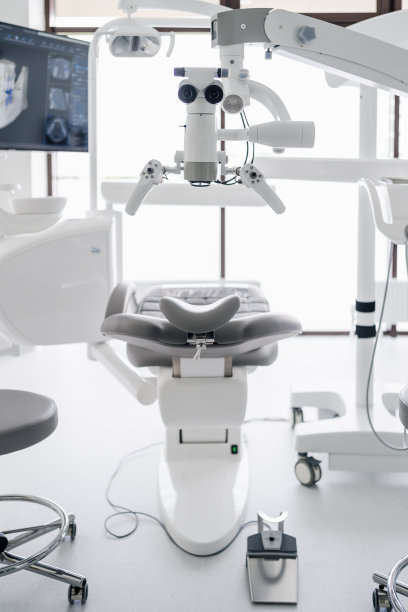Summary: Dental implants have revolutionized the field of modern dentistry, providing patients with a comprehensive solution for tooth loss. This article delves into the various benefits and innovations associated with dental implants, highlighting their ability to restore not just smiles but also overall oral health. From improved aesthetics and functionality to advancements in technology and materials, dental implants offer a durable and effective option for those seeking long-term tooth replacement solutions. Additionally, we explore the psychological impacts, evolving techniques, and the growing accessibility of dental implants. By the end of this article, readers will gain a deeper understanding of why dental implants are a preferred choice for restorative dentistry today.
1. Enhanced Aesthetics and Functionality

One of the most significant benefits of dental implants is their ability to dramatically improve the aesthetics of an individual’s smile. Unlike traditional dentures or bridges, dental implants look and feel like natural teeth. The crown placed on the implant is custom-made to match the color, shape, and size of the surrounding teeth, ensuring that the restoration blends seamlessly with the patient’s smile.
Beyond aesthetics, dental implants restore functionality. With implants securely anchored in the jawbone, patients can eat, speak, and perform daily activities without worrying about slippage or discomfort. This stability allows individuals to enjoy a varied diet, including crunchy and hard foods that might be difficult with traditional dentures.
Furthermore, the confidence gained from having a complete smile can enhance social interactions and improve overall quality of life. Patients no longer have to feel self-conscious about missing teeth or uncomfortable dental appliances, leading to a more fulfilling social experience.
2. Advanced Technology and Materials
The field of dentistry has seen remarkable innovations in the materials and technology used for dental implants. Modern implants are typically made from biocompatible materials, such as titanium, which integrates well with the jawbone. This provides a robust foundation for the replacement teeth, ensuring longevity and durability.
Additionally, advancements in imaging technology, such as 3D scanning and digital modeling, have significantly improved the precision of implant placement. These techniques allow dentists to plan procedures with unparalleled accuracy, minimizing complications and optimizing recovery times for patients.
Innovations in dental implant design are also noteworthy. Recent developments include mini dental implants that require less invasive procedures and enable quicker recovery. These options expand the range of patients who can benefit from dental implants, including those with limited jawbone density.
3. Long-term Oral Health Benefits
Dental implants not only restore the appearance of your smile but also significantly contribute to long-term oral health. One of the essential advantages is the prevention of bone loss. When a tooth is lost, the jawbone gradually deteriorates due to lack of stimulation. Dental implants mimic the root of a natural tooth, providing the necessary support to maintain bone density and structure.
Moreover, dental implants prevent the shifting of neighboring teeth, which can occur when there is a gap in the dental arch. This movement can lead to further dental issues, such as misalignment and increased risk of tooth decay. By securing the implant, patients help preserve their overall dental health.
Aside from physical health benefits, dental implants are also easier to care for than traditional dentures. With proper oral hygiene practices, implants can last for many years without the need for frequent replacement, significantly improving patients’ long-term dental health outcomes.
4. Accessibility and Affordability in Dentistry
While dental implants were once considered a luxury, advancements in technology and increasing competition among dental clinics have made them more accessible to a broader audience. Many dental professionals now offer financing options or dental plans that specifically cover implant procedures, reducing the financial burden on patients.
This increased accessibility also includes collaborative cross-training among general dentists and specialists. This approach allows more practitioners to safely offer dental implant procedures, further enhancing patient options and convenience.
Furthermore, educational initiatives and awareness campaigns about the benefits of dental implants are transforming public perception. As patients become more informed, they increasingly view implants as a viable and essential restoration method, encouraging more individuals to seek out this transformative treatment.
Summary:
In summary, dental implants represent a significant evolution in restorative dentistry, offering numerous benefits ranging from enhanced aesthetics to long-term oral health advantages. Innovations in technology and materials have made them more effective and accessible, ensuring that more people can restore their smiles. As the field continues to advance, dental implants will undoubtedly remain a leading choice for individuals seeking a permanent solution to tooth loss.
This article is compiled by Vickong Dental and the content is for reference only.
Vickong Dental
Vickong Dental is a large medical group established in Hong Kong in 2008 by professors from well-known medical universities in Guangdong and Hong Kong, as well as medical doctors from key national '985' universities (including Master's supervisors and senior professors). The chain of branches brings together expert dentists with PhDs and Master's degrees from Hong Kong and Mainland China, committed to providing high-quality dental treatment.
"Vickong Dental Practices the University Motto of 'Healing and Serving Society,' with a Stable Operation for Sixteen Years. It Has Been honored with Hong Kong Enterprise Leaders's Choice,' and is a Global Trusted Implant Center for the Nobel Implant System. Recommended by Hong Kong Metro Broadcast and Guangdong Television, it Serves Customers from Over Thirty Countries and Regions, Gaining the Trust and Favor of Citizens from the Guangdong-Hong Kong-Macau Greater Bay Area and Surrounding Cities.

Thousands of customers' unanimous praise
The most recognized and highly recommended dental service by customers in the Guangdong-Hong Kong-Macau Greater Bay Area
We Ensure You Receive Detailed Care and Attention Here
Hong Kong standards, Shenzhen prices, Your Trusted English-speaking dentists

Vickong Dental Medical-Grade Instrument Disinfection Process
Vickong Dental Medical-Grade Instrument Disinfection Process

Vickong Dental Chain: A Warm and Comfortable Environment for Treatment






Appointment Hours

Q&A
Why choose Vickong Dental?
Vickong Dental practices the university motto 「Medicine to Benefit Society」, with each branch bringing together highly qualified dentists with doctoral and master’s degrees from Hong Kong and the Mainland, and has maintained seventeen years of steady operation。Recipient of 「2024 Hong Kong Enterprise Leaders Brand」, 「2025 Hong Kong Enterprise Leaders Brand」, a Nobel Biocare Global Trusted Implant Center, and a brand recommended by Metro Radio Hong Kong and Guangdong TV。
To date, we have served customers from more than thirty countries and regions,earning exceptionally high word-of-mouth recognition and trusted recommendations from residents across the Guangdong-Hong Kong-Macao Greater Bay Area and surrounding cities
We have eight major branches in Zhuhai、Shenzhen,and a consultation and service assurance center in Hong Kong,so you can book a free consultation at any time for any questions,which is very reassuring.
If I do not accept the quotation after the CT scan, will I be charged??
No! As long as the actual treatment has not started, you will not be charged any fees.
Will there be any additional charges during the treatment process?
No, there won’t be any additional charges. Before treatment begins, we will clearly explain the treatment plan and its corresponding fees. Only after the patient agrees and signs the consent form will we proceed with the dental service.
Can I pay in Hong Kong dollars?
Yes. Vickong Dental accepts payment in Hong Kong dollars. The amount will be converted based on the exchange rate of the day, and the applicable rate will be clearly communicated to you in advance.
Can I reschedule my appointment at any time?
Yes. Please contact us via **WeChat** or **WhatsApp** as early as possible, providing your original appointment time and details, along with your preferred new date and time slot for rescheduling.













